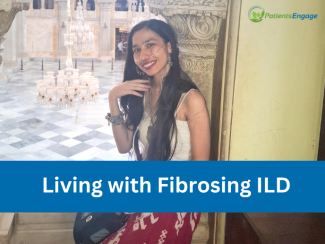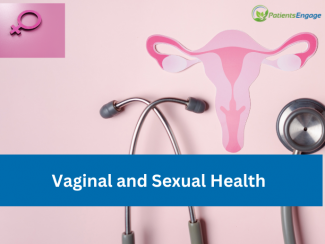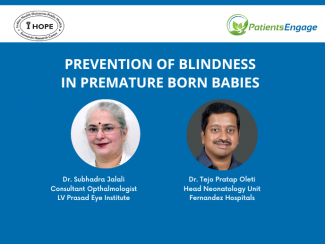
Dr Roma Kumar, Clinical Psychologist and Senior Consultant at the Institute of Child Health at Sir Ganga Ram Hospital, New Delhi, talks about how siblings of a child with a condition also need care and empathy and what may be the emotional turmoil for such a sibling, as a child and often even as an adult.
What is the positive and negative impact of a child with disability or a serious health condition on the brothers and sisters?
The quality of the life of family members, as well as of the child with disability, can be hugely compromised in terms of physical effects, psychological distress and social problems.
Siblings can learn to participate in the family and feel pride and love in helping their brother or sister with his or her disability. The positive impact would probably be the sensitising factor. The sibling naturally grows more aware and conscious as he grows up witnessing how the family handles treatment of the brother or sister and how a doctor is also a part of important decisions. It is something like an emotional hygiene for them or a first aid. The negative impact would be that they often feel lonely and maybe neglected as parents naturally feel more protective towards a child with a condition.
Older siblings in some cases feel a little more sidelined than the younger ones, as the former suddenly feels their share of affection being given away. This is because parents get totally caught up with the child who has a condition if he is born after a normal child, whereas if a normal child is born after a child with a condition, then the parents also feel relieved and pamper the younger one more.
Related Reading: Orko, my brother
There is also a difference in genders. Girl siblings are often expected to chip in more than their male counterparts in taking care of their brother or sister with a condition. They are unable to plan activities in advance, such as holidays and family activities, and complain that they lose out on “spontaneity” and “freedom” in their lives.
Siblings often react strongly, being rebellious or faring poorly in school, mainly to get attention of the parents, who they feel are more concerned with their brother or sister with a condition.
Is it okay to assume that siblings play an integral caregiving role in the lives of children with conditions?
It is perhaps unfair to assume that the siblings will do that. As a result, the sibling’s childhood is often affected. They feel burdened with a responsibility they do not want. Often some amount of animosity creeps in for their brother or sister who has a condition. They feel even more pressured because they cannot even talk about it with their friends. Their academics may suffer, they often cannot go out with friends and they perceive neglect from parents. They often look for expensive options by which they can make their parents spend more money on them, which, they feel, is their right.
Do siblings tend to resort to ‘Parentification’, i.e., developing duties similar to those of a parent? What is the usual fallout of this?
Siblings of children with disability often face a high number of role transitions, as the household dynamic is changed and they must take on new tasks and responsibilities.
A child with disability changes family members’ roles, responsibilities and boundaries. It disrupts their self-images and self-esteem. It results in uncertain and unpredictable futures. And it triggers distressing emotions - anxiety, depression, resentments, feelings of helplessness, as well as illness.
Siblings may face a relationship based more on caregiving than mutual companionship.
The result of these role transitions is often a role strain and role overload; role strain refers to the stress a person feels when one struggles to comply with one’s given role, and role overload refers to the increase of role strain due to the addition of too many new roles and expectations.
Are siblings of children with disabilities at a greater risk than average of developing emotional issues and stress?
The impact of the disability on families is widespread and profound. Family members are affected in multiple ways across all medical specialties. Siblings do tend to feel they have to hide their feelings from the family members in order to provide support – for many this is very difficult. This emotional impact has a major influence on many areas of their lives, e.g., on health and sleep.
Siblings are not at greater risk perhaps, but research shows that they do develop emotional issues. They even tend to get into drugs, alcohol etc because of stress. They even become suicidal. All this stems from a craving for attention.
They might get angry if they are asked to assume more household chores, than their sibling with a disability.
Siblings might feel quite guilty when they resent the additional responsibility they are tasked with and they often get embarrassed or even angry when strangers stare at their brother or sister with a disability, or when other children tease their sibling because he or she looks different.
What symptoms of emotional issues should parents watch out for? When do the siblings need counselling? Or do they need counselling anyway?
The common areas that might be affected, whatever the specific diagnosis, include emotional impact, financial aspects, social life, time commitments, personal relationships and family activities such as family holidays (vacations). Often the family as a whole requires therapy or counselling. Siblings even sometimes opt for hostel life to get away from it all.
Whenever we talk about early intervention for children with special needs we have to consider the whole family: How true is this? And do siblings deserve even more attention?
A big yes to this. Despite the fact that having a child with disability may lead to an increase in impairment of intra-familial dynamics, it may, at the same time, offer opportunities for an improvement of family relationships.
Can you share some tips for parents to ensure a 'balanced' childhood for the siblings?
While attending to the needs of the child with disability, parents may be neglecting – or creating unfair expectations for – the other children. At times, siblings tend to feel invisible unless they demand attention. The presence of a family member with a disability provides opportunities for increased empathy, responsibility, adaptability, problem solving and creativity.
- Communicate and Support each other.
- Try to establish some balance between the needs of the child with disability and those of the other children.
- Spending some time with each child individually may help.
- Developing a special relationship with each one of the children is very therapeutic.
- It is important that parents listen and address the questions that siblings have and give honest information about the condition.
- As much as possible, parents must involve all the children in shared decision making about any health care that affects them.
How can the extended friends and family help?
A joint family structure in this kind of a situation proves most beneficial. The family does need to pitch in all the time.
Having a social support network outside the family also benefits all members of the family, both physically and psychologically. Sometimes, just knowing they are available if needed — even if they are not turned to — can be helpful.
Does the dynamic change when the siblings grow up? Do they need counselling even as adults?
The goal should be to move from crisis management to incorporating the disability into the family’s daily lives. The fact is that life will never be exactly the same as it was before. Therefore, family members should challenge themselves to define what a “normal” family life is now. They should struggle to find ways to understand and make meaning of the experience.
They do need counselling. The feeling persists even when they grow up. Because they have not worked upon themselves.
Taking care of other family members’ physical and psychological health is very important. This is important for every family member. They need to learn relaxation or meditation techniques, exercise regularly, take some time alone, take time to get away from it all as a family, take walks and plan fun activities.
Anything else that you would like to add?
Disability can be extremely disruptive to family life. But, it can be possible to maintain a homeostasis by using the many coping strategies available, as well as seeking help when necessary.
There is no right way or wrong way for siblings to live and grow together; rather, every family should attempt to strive for its own balance and determine what are some strategies and supports that help the child with disability and her siblings to thrive and be resilient.
The ultimate goal is to build internal strengths and coping skills in the child with a disability and in all of the members of the family.
While most families with chronic health problems or disabilities struggle through times of fear and despair, many also develop an internal resilience, a creativity, and a closeness or cohesiveness that helps the children with and without disability and rest of the family to manage and cope together with the many stressors that may develop over time. Often as a result of these experiences, adults and children learn about their strengths and limitations, talk more openly, and learn new ways to solve problems which foster mastery and pride.
Related Reading: Anxiety, Stress and Special Needs Parent







